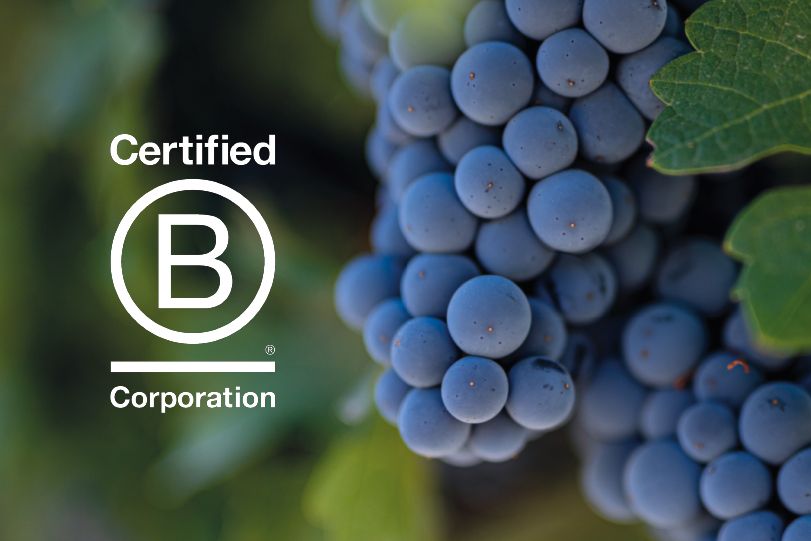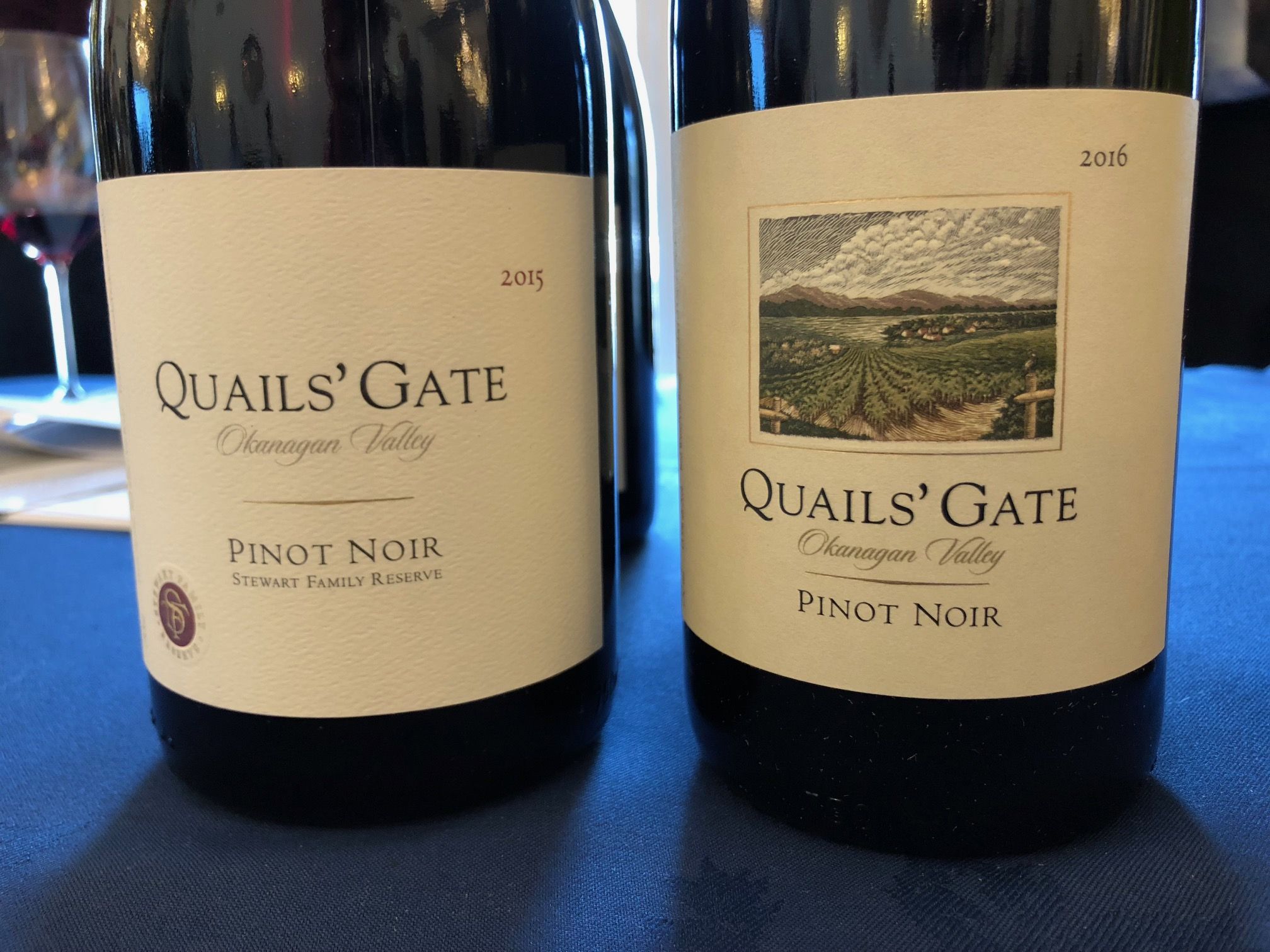“B Corp is a way of forcing yourself to being sustainable to the core of your business,” is how Rob Symington of Symington Family Estates explains the B Corp process. Rosie Davenport, former editor of Drinks Retailing News, who now runs sustainability consultancy, Impact Focus, looks at how a number of wine businesses are following a B Corp strategy.
From Tasmania to Reims – and, as of March this year – Liverpool, more wine companies are joining the B Corp movement that’s shaking up the corporate status quo and challenging the meaning of “business as usual”.
Founded by B Lab in 2006, the B Corp concept centres on the idea that business should be a force for good rather than existing purely to drive profits into shareholders’ pockets.
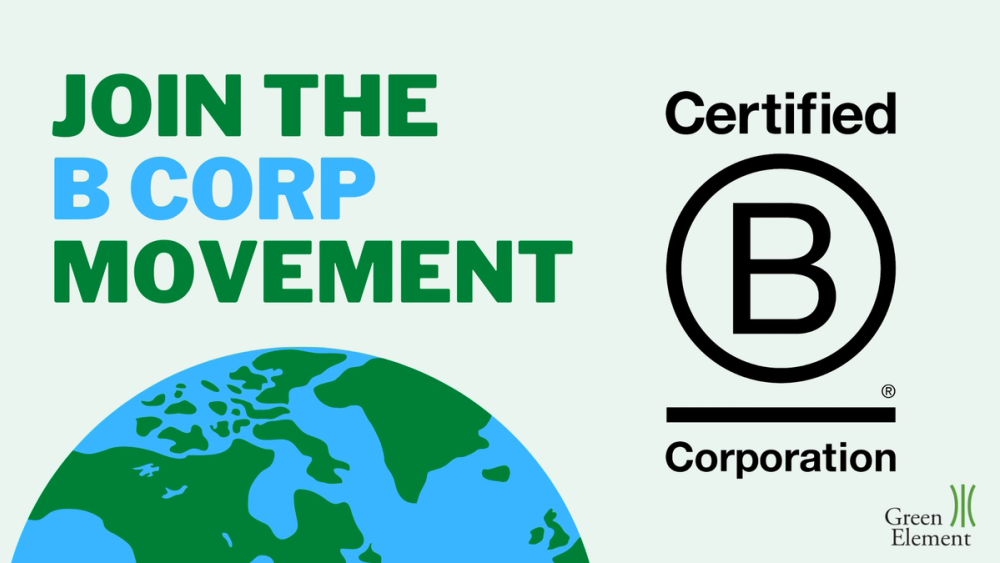
An increasing number of wine companies – including producers, importers and retailers – are looking to have B Corp status
B Corps legally commit to considering the impact of their business through a much wider lens, factoring in how the outcomes of their decisions affect multiple stakeholders.
Signing up to this so-called stakeholder governance model is just the first step to becoming a certified B Corp.
The real work starts with the B Impact Assessment, where companies answer up to 200 weighted and unweighted questions covering five core areas: governance, workers, customers, community, and the environment.
To certify, you need to reach 80+ points and be able to substantiate your claims with supporting documentation, which gets independently audited before certification is confirmed.
As a B Leader, trained by B Lab to help companies on their journey, I can vouch that it’s no easy task and earning the right to use the coveted B logo is hard won.
(A short video to explain what being a B Corp business entails)
A growing movement
At B Lab’s last official count, there were 6,500 B Corps across 160 different industries, though that number continues to march on, defying suggestions it’s just a passing fad.
The pandemic saw a huge surge in interest, with almost 10,000 submissions for certification from businesses since the beginning of Covid, a 37% increase compared to the previous three-year period.
Nowhere is proof of the swelling ranks more evident than on Linked-in, the wave of proud certification posts growing each week.
The trend has certainly caught the attention of Linked-in’s co-founder, Reid Hoffman, who recently donated $1 million to B Lab’s non-profit coffers to accelerate its progress.
Maria Correa, head of communication and community engagement at B Lab Europe, says:
“The B Corp movement attracts a diverse range of businesses, operating across a vast spectrum of industries, all united by a shared committed to act as a force for good. We’re seeing an exciting trend among wineries keen to engage with the B Corp community and pursue certification.
“As B Corp awareness continues to grow around the world, consumers increasingly seek out certified products to give them confidence they’re supporting brands that go beyond simply making a profit.”
This is borne out in the UK, where retailers increasingly see B Corp status as a key point of difference to entice customers. WH Smiths, Boots, Waitrose and its former trading partner, Ocado, all offer dedicated areas for certified products.
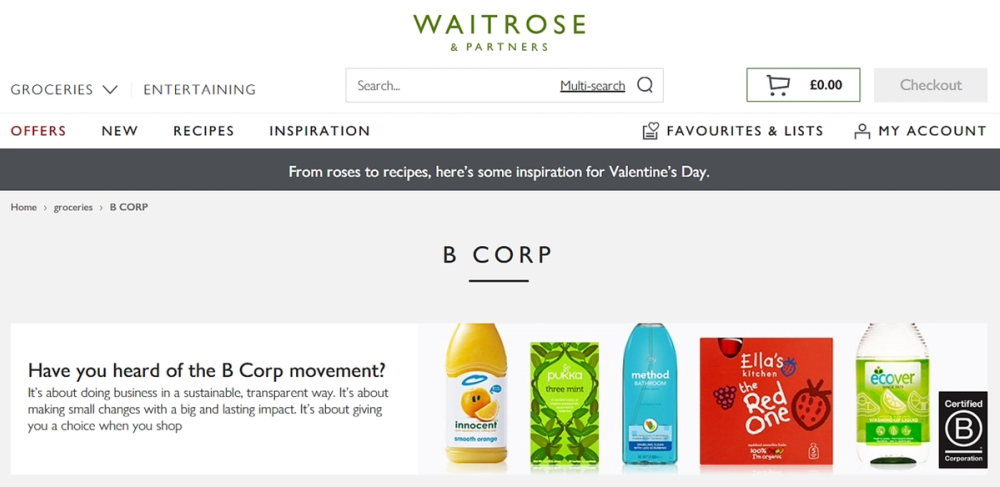
Waitrose is promoting its B Corp status strongly on its website and believes it is “something our customers are looking for”
“We’ve a long history of sustainable sourcing,” says Pierpaolo Petrassi MW, Waitrose’s head of beers, wines and spirits, “and it’s something that our customers look to us for. B Corp products show that people can get exceptional quality, without costing the earth.”
He adds: ”All our B Corp products are pulled out in a specific page of our website, making it easy for customers to shop for more sustainable products. We’ve over 40 different products within the BWS category alone – ranging from wines through to beers and pre-mixed drinks to go.
“More widely though, we’ve hundreds of products from B Corp certified brands, meaning that customers can easily make sustainable choices.
“Feedback from customers has been really positive, as it’s helping them source excellent products with lower environmental impact, without any extra fuss.”
Highlighting like-minded trading partners
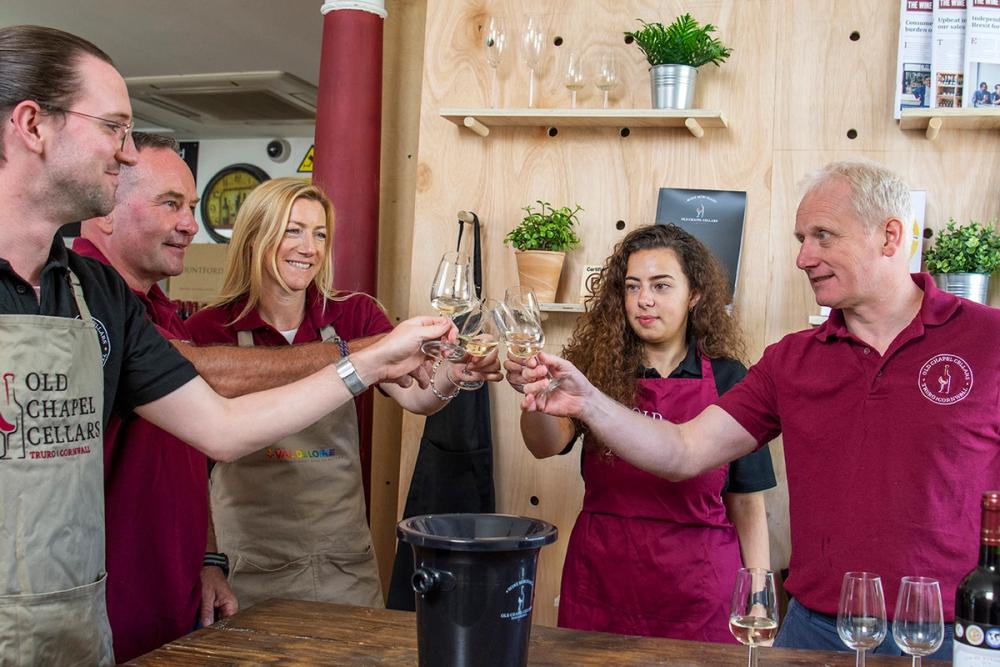
Louisa Fitzpatrick, third left, and the Old Chapel Cellars team
Some retailers are going even further and getting certified themselves, such as Liverpool-based online specialist Think Wine Group and the Old Chapel Cellars in Truro, which became the UK’s first B Corp wine merchant – and only the second in the world – last February.
“I was determined to go for it, but it does take an enormous amount of work,” says Old Chapel Cellars co-owner, Louisa Fitzpatrick.
“I really believe in the idea of making businesses the best we can be in order to help the greater good. We are not perfect and wine is not perfect, but we will always do our best and that’s at the heart of B Corp.
“Wineries are looking at ways to limit their usage and they are producing more organically, and I think there’s a lot to shout about.”
She says becoming a B Corp has changed her whole business approach.
“Once you’ve shifted your mindset, you start making decisions differently. So, for instance, we now do supplier surveys asking about their community and environmental concerns, which is really good for transparency.”
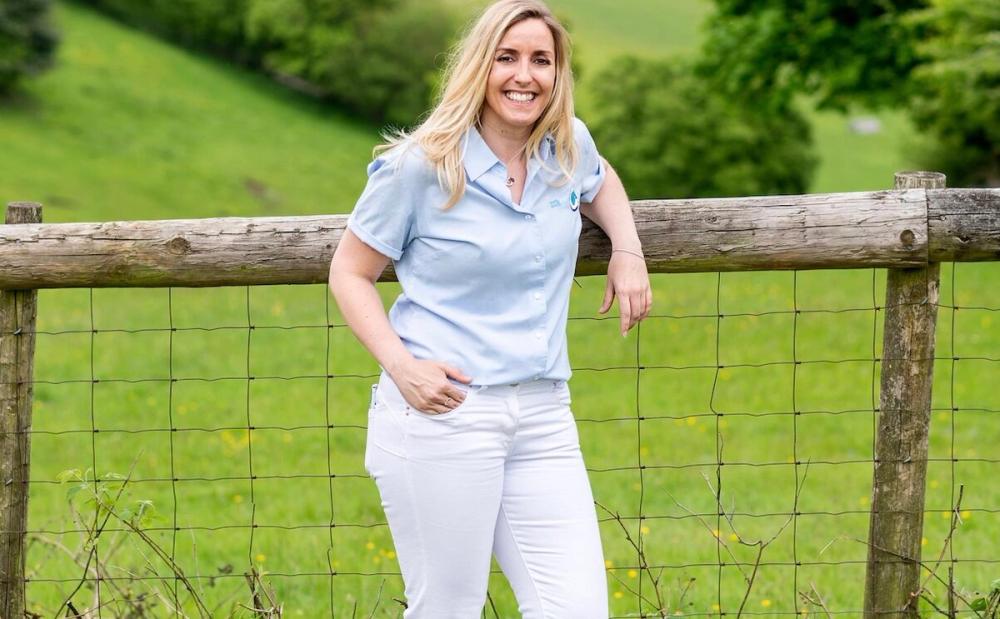
Kim Wilson is hopeful North South Wines will gain its B Corp status from B Lab
Kim Wilson, managing director at wine distributor, North South Wines, is delighted to have this week received the call from B Lab confirming it’s been awarded certification having submitted last year.
She says on gaining B Corp status: “We are delighted to be joining the B Corp community of likeminded businesses, this is just the start for us. B Corp certification is about continual improvement, and we are looking at the next steps and what we need to do to continue our journey. When I think back to two and a half years ago when we started the B Corp process, I am blown away with progress that we have made so far. This is a long-term game and I feel we have reached base camp, but the summit is still a long way off. But we will get there.”
She agrees that going through the process has put a new emphasis on how she selects trading partners. Wineries are now asked to complete a sustainability questionnaire which acts as a “screening process” to what makes it into the company’s portfolio based on shared values.
“The majority of our suppliers have been fantastic because they have all that information and are already sustainable in one aspect or another,” says Wilson. “We’ve got a lot of organic and biodynamic producers as well, so the majority have been very open and got back to me very quickly. I think there’s a sense that they will come on this journey with you.”
Creating deeper relationships
This shared sense of purpose can have a transformational impact on the traditional supplier/retailer dynamic.
Although it only certified in September last year, Ridgeview, the leading English wine producer, has already noticed customer relationships becoming stronger and with more common ground.
Tamara Roberts, chief executive, explains: “When you do enter into new commercial arrangements or relationships, they tend to be a little bit deeper. And I would say have potentially more longevity to them because you’re coming together with the same sort of mindset.”
She adds: “Because you have the same values at your core and, you obviously have the commercial side, but it’s not all about that. I think we’ve seen relationships get much deeper and the opportunities within those relationships have become greater, rather than being [just] transactional. That, to me, is big.”
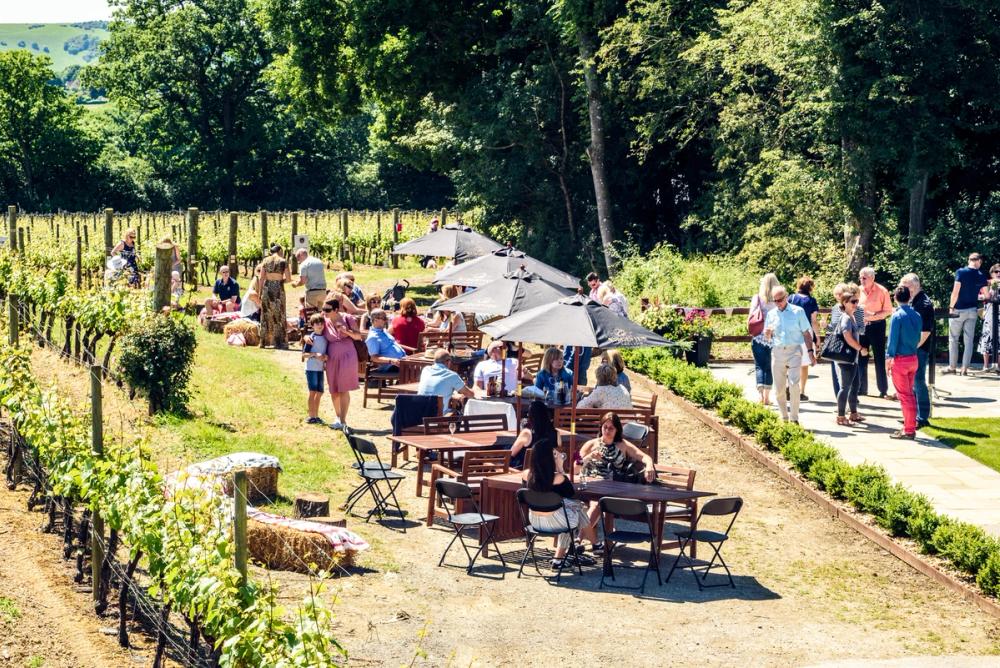
English wine producer Ridgeview says its B Corp status has “opened doors and given us an edge”
“It’s definitely opened doors and given us an edge,” adds Mardi Roberts, Ridgeview’s director of communications. “And when people are on the fence about their decision making, it’s easier for them because they know the credibility of your company.”
“Because everyone’s got to look at their supply chain now and one of the easy wins for big companies is to have a supply chain who are accredited in some ways sustainably. It’s an easy way for them to start improving their own sustainability.”
Valentina Lira, director of sustainability for Concha y Toro, has seen the same shift in trading discussions and believes B Corp status, which it’s held since 2021, has enabled it to showcase a different side of its business to retailers.
“We have regular meetings with them to show our sustainability strategy in greater detail and also to create a new relationship that’s not only a commercial relationship. We have many common topics and we are able to show the other face of the company.”
“It’s a complete mindset change. For instance, we have a very good relationship with Walmart in Chile and when they wanted to launch a new program here, we were one of only three companies invited to be pioneers. That’s the kind of relationship we want to grow, it’s not just the commercial part.”
Rob Symington, marketing director at Symington Family Estates – B Corp since 2019 – has also found a different dimension to trade relationships.

Rob Symington says wine producers need to measuring and producing real data to show the steps they are taking to tackle climate change
“We’ve had a great response from retailers and importers. People who understand B Corp really get it. The only thing in the industry that people understand is organics, but it’s so narrow. We have the B Corp logo on our label, it’s a guarantee of a certain standard. It’s a shortcut for a trade customer to have confidence that you’re committed to best practice.”
A complement to existing industry standards
One of the criticisms levelled against B Corp is that it’s too broad in its scope to deliver meaningful change to industry-specific problems. But others see its breadth as a strength and like how it works alongside other standards.
Stephen Cronk, is co-owner of Maison Mirabeau and co-founder of the Regenerative Viticulture Foundation. Like Wilson, having been drawn to its multi-dimensional approach, he’s also hoping to hear his B Corp certification submission was successful.
He explains: “I have been very heavily involved in launching the Regenerative Viticulture Foundation and felt we needed to review our own practices to ensure we were doing the best we could across all parts of our business, before starting to discuss how people can engage in better farming.”
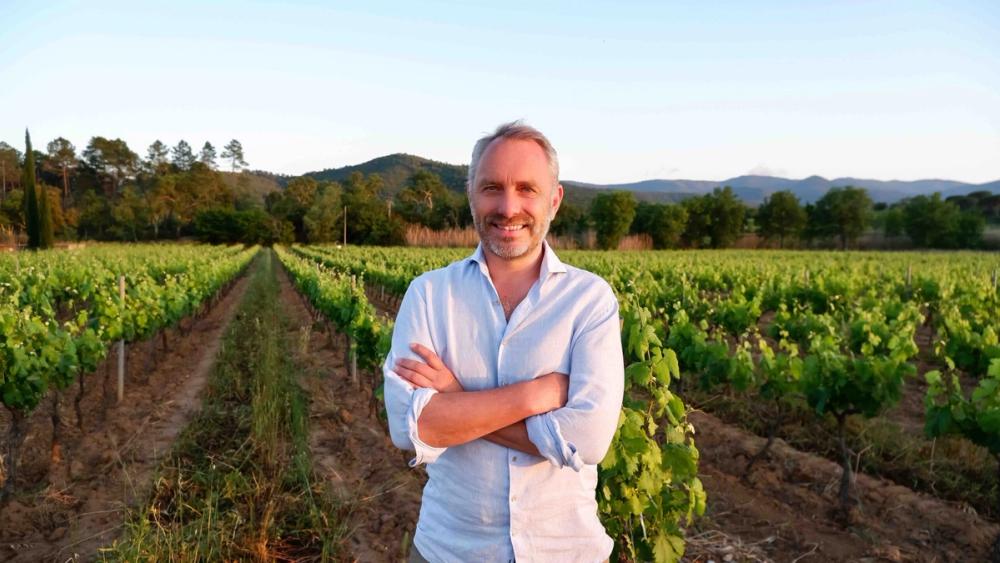
Mirabeau’s Stephen Cronk and co-founder of Regenerative Viticulture Foundation says being B Corp is part of a wider mission to ensure it is farming and making wine as sustainably as possible
He adds: “It was interesting to look at all the different accreditation options. There are quite a few certifications available and there are some that are more onerous than others, and B Corp seems to be the most onerous and also the most meaningful as well. We like that it captures environmental impact as well as our people and our community.
“B Corp was tough and has made us look at everything we do. You never stop learning and you can always do more, it’s about constant improvement.”
Blandys, the Madeira producer, was certified last December and, while the process was tough, chief executive, Chris Blandy thinks the fact it was already adhering to environmental and health and safety standards helped.
“We were already doing a lot and so we thought ‘why don’t we try to incorporate another certification?’ We don’t own the majority of our vineyards, we only own 5%, so we work with 323 growers and it was a challenge to get the message across about what we were doing and why. When they say B Corp is a journey, it really is. But we realised that if we were serious about keeping the winery for the next 200 years, we needed to look at ways to make a difference,” he explains.
Tamara Roberts says Ridgeview had a similar experience. “We’re a manufacturer, a grower and a distributor, so just focusing on the vineyard didn’t feel like the right thing for us to do. What I liked about B Corp was that any changes you were already making just fed into it. For instance, when we joined the Sustainable Wines of Great Britain initiative that just slotted in to reinforce the environmental side of B Corp. So, it wasn’t like you had to do any of those bits again, you could count those into your B Corp journey.
“B Corp is about a long-term plan, about measuring what you’re doing now and making inroads and making the business better year on year.”
“The challenge of our generation”
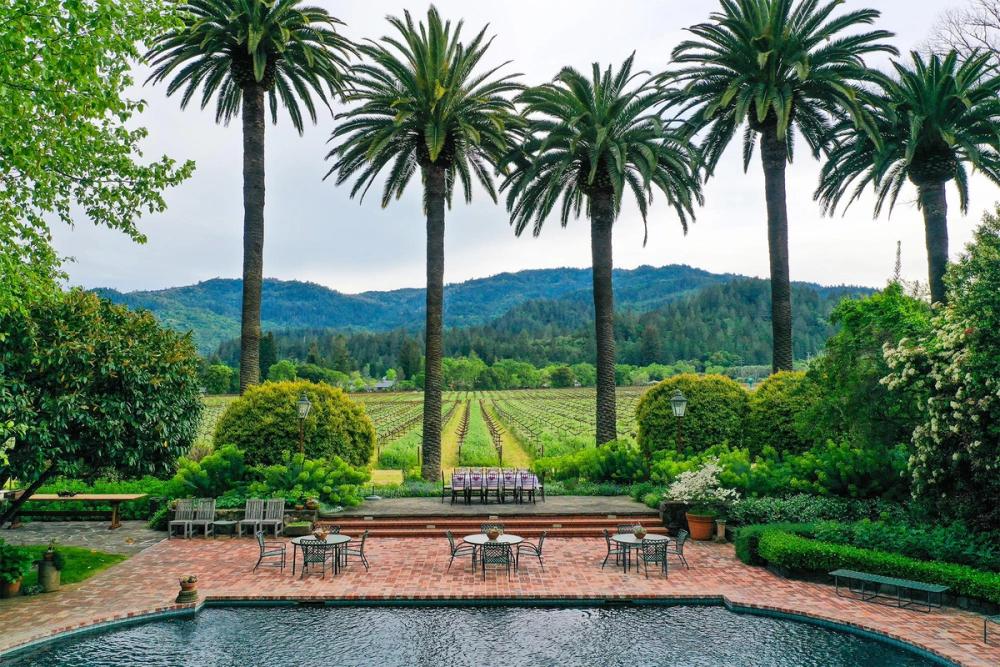
Napa’s Spottswoode was the first producer in the region to B Corp certified
Beth Milliken, chief executive at Spottswoode, which was the first winery in Napa to certify in 2020, agrees with fellow B Corps about it being a compass for continuous improvement across the business.
“With our recertification later this year, we will have achieved significantly more points, thus illustrating our commitment to ongoing improvement. We are aiming for 110 points when we recertify.”
But she also emphasises that, unlike other certificates and standards, B Corp is a movement with a powerful philosophy of socioeconomic change at its heart.
“My strong belief is that we need to adopt what I call “capitalism with a conscience”, which means that we need to stop having a mindset of quick financial results and share price. This approach has failed our natural environment, which is on the brink, and it’s failed our planet and the next generation. We have to move away from this mindset, and B Corp is a brilliant tool to do just that.”
And she urges more leaders to engage with the issues B Corp raises and respond to the challenge. “The industry, and the whole of the business world, has to step-up – retailers and consumers demand better,” she says.
Symington echoes her clarion call to the industry. “[With B Corp] you’re holding your own feet to the fire. It’s a way of forcing yourself to being sustainable to the core of your business. Climate change is the challenge of our generation. The game has changed and we change things by being change agents.”
He adds: “The big challenge is the pace of change. And this requires more CEOs being more outspoken and talking like activists – and B Corp is an activists’ movement.”
- If you’re interested in finding out more about B Corp or how Impact Focus can support your business on its sustainability journey, check out its website here or drop Rosie Davenport an email on rosie@impactfocus.co.
